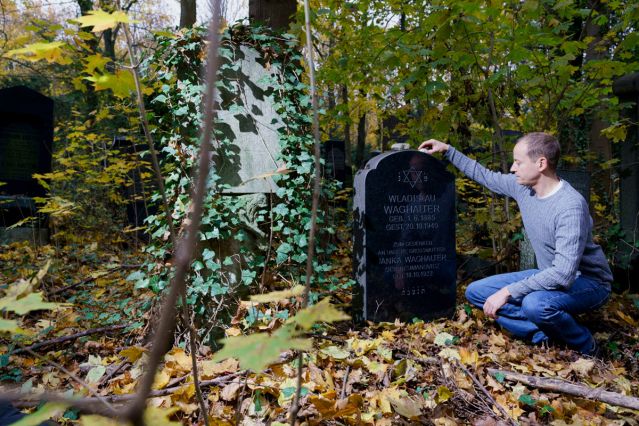„Wider das Vergessen“ - Deutsche Oper Berlin
Against Forgetfulness
Benedikt Leithner is a one-man crash course. He has been tracing the fates of Jewish members of the orchestra of the Deutsche Oper Berlin during the National Socialist period. In our 2nd Tischlerei concert of the season 2019/20, we remember them.
Chamber Music II: Against forgetfulness
A memorial concert for Wladyslaw Waghalter, Max Rosenthal, Werner Lywen and Hans Kraus
13 January 2019
Eight members of the orchestra were dismissed as soon as Hitler came to power in 1933. Singers, too, were sacked along with dancers, stage hands and even the artistic director and managing director.. I have been trying to track down their stories - so far with little success – but the questions have not gone away. Who were they? Did they have families? What happened to them? I spent a year ploughing through archives in an attempt to piece together the private and professional trajectories of my colleagues.
One such musician was Wladyslaw Waghalter, the Jewish violinist and concertmaster. He had been with the Deutsches Opernhaus from its inaugural performance in 1912 and had founded a string quartet, the “Waghalter-Quartett”. Following his dismissal, Waghalter still had a family to feed. His straitened circumstances are clear from his correspondence, which included letters he wrote to the new director of the opera house and the Ministry for Propaganda questioning the size of the pension being paid to him. He was initially allowed to perform before Jewish audiences on special occasions. He died in Berlin in 1940. His wife and daughter were deported and murdered in Auschwitz.

The legal basis underpinning the dismissals was provided by the “Law for the Restoration of the Civil Service”, which was passed by the National Socialists in 1933. All musicians had to register with the “Reichsmusikkammer”, the State Bureau of Music, a condition of membership being that they had to be of “Aryan” stock. Non-Aryans were fired from any position they held in a cultural institution. Some musicians of the Deutsche Oper Berlin were granted a reprieve for a while, if they could demonstrate that they or their father had fought at the front in the First World War.
The wave of dismissals also dashed the career of violinist Max Rosenthal, who had been playing in the orchestra since 1913. Along with his wife and eleven-year-old daughter he was deported to Minsk, playing music in the train as they went. According to the diary of a fellow deportee: “This evening a wonderful concert with Max Rosenthal”. In Minsk the family was put to death.
By my reckoning, Werner Lywen, a viola player, was the youngest orchestra member to be ejected from his post. Well connected in the Berlin scene, he had known the composer Paul Hindemith in the 1920s and played in the orchestra of the Deutsche Oper Berlin since 1929. His dismissal came when he was 24 years of age; two years later Lywen fled Germany, going on to forge a career in America. He played in New York with Leonard Bernstein and became a concertmaster, dying in Los Angeles in 2002.
In our AGAINST FORGETFULNESS concert we perform works that have a direct link to the persecuted. For Wladyslaw Waghalter we are doing a sonata composed for him by his brother Ignatz. For Max Rosenthal we are playing a sextet by Erwin Schulhoff, a Jewish composer who likewise perished in a concentration camp. For Hans Kraus, a member of the “Waghalter-Quartett”, we present a quartet by Haydn that Kraus once performed with the “Waghalter-Quartett”. For Werner Lywen we are performing three dances, a pastorale and the Royal March from Igor Stravinsky’s “The Soldier’s Tale”.
The musical pieces are interspersed with original texts linked to the lives of the musicians, read by the actress Margarita Broich. These include a newspaper review of a concert and a letter from Werner Lywen to the artistic director requesting a transfer from the violas to the first violins.
After a year immersed in research, I feel a close bond with these musicians.




